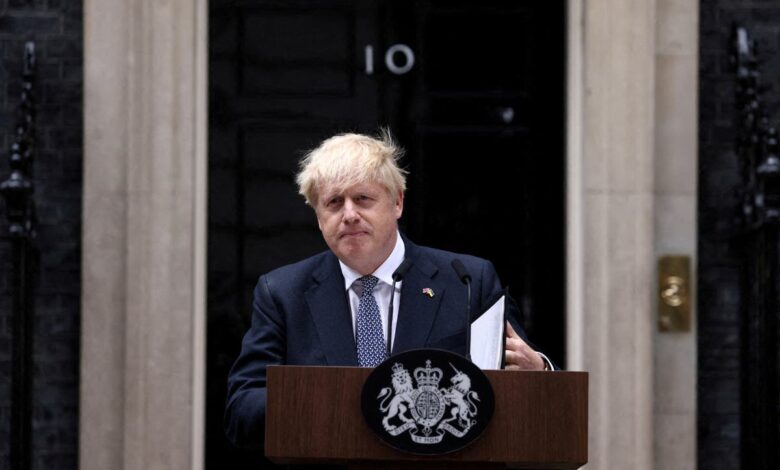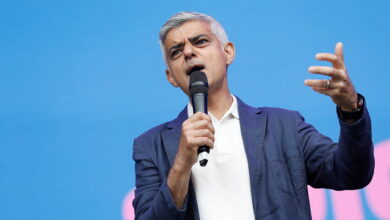Is Boris Johnson still a vote winner? Britain has changed in the last three years

Supporters of Boris Johnson in the Tory leadership campaign are making two key arguments. The first is that he is a proven electoral winner. The second is that, unlike any of his rivals, he has a mandate from the electorate to be prime minister.
But how persuasive are these arguments when we subject them to a degree of scrutiny?
There is no denying the success that Mr Johnson brought his party in 2019. He inherited a party that was deeply divided over how to proceed with Brexit and stood at just 25 per cent in the polls. Indeed, the Conservatives had suffered the humiliation of winning just 9 per cent of the vote in that May’s European parliament election.
But on becoming leader, Mr Johnson threw out the ardent Remainers in his party, negotiated a new Brexit agreement (the now infamous Northern Ireland protocol) that better satisfied his Brexiteers, and then went on to win an overall parliamentary majority of 80 in the December 2019 election.
However, there is a crucial difference between the circumstances that pertained in 2019 and the challenge the Conservative Party faces now. In spring 2019, the party was losing support because Leave voters were doubting the party’s ability to deliver Brexit and were flocking to Nigel Farage’s Brexit Party. Just before Mr Johnson won the keys to 10 Downing Street, the Brexit party led the Conservatives among Leave voters by 39 per cent to 34 per cent.
By convincing those Leave voters that he could “get Brexit done”, Johnson squeezed the life out of Farage’s Brexit Party. In the December 2019 general election, nearly three quarters of those who voted for Brexit in 2016 voted for Johnson’s “oven ready” deal. In contrast, at 20 per cent, support for the party among Remain voters was only up five points on the 15 per cent at which it had stood at the beginning of Johnson’s premiership.
Now, in contrast, it is Labour, not the Brexit Party (now called the Reform Party) which is doing the damage. As in the middle of 2019, the Conservatives are averaging just 34 per cent among Leavers. But it is Labour that is now ahead (on 40 per cent) among a group that thoroughly rejected the party in 2019 (just 15 per cent voted Labour then).
Meanwhile, whereas in June 2019, Ipsos recorded a net satisfaction rating for former Labour leader Jeremy Corbyn of -58, Sir Keir Starmer stands at an unexciting but relatively presentable -1. The political opposition to the Conservatives is more formidable than it was three years ago.
Meanwhile, the source of voters’ discontent now is not Brexit, albeit that the polls suggest that leaving the EU is, these days, somewhat less popular than in 2016. Rather, voters are unhappy about the state of the economy in the wake of a fiscal crisis for which most voters regard the government as responsible. While even in the summer of 2019, as many as 57 per cent thought that the economy would get worse over the next 12 months, now the figure stands at 70 per cent.
Johnson’s personal popularity – never as high as often suggested – is also not what it once was. On becoming prime minister, his net satisfaction rating was -7. By the time he left office at the beginning of July, it stood at -45. Meanwhile, it was the Partygate revelations that emerged in December of last year that saw the Conservatives fall behind in the polls for the first time in this parliament – damage which Johnson never showed any sign of being able to repair.
To keep up to speed with all the latest opinions and comment sign up to our free weekly Voices Dispatches newsletter by clicking here
By the end of his time in office, support for the party among Leave voters was down to just 51 per cent. In truth, the “mandate” Johnson won in 2019 has not aged well.
Historical analogies often appear to be an attractive way of supporting a political argument or campaign. But they can also flatter to deceive. What supporters of Boris Johnson need to do is demonstrate how their standard bearer will deal with the problems that face their party today, not simply remind us of his achievements three years ago.
How will Johnson turn around an ailing economy, a weakened fiscal position and overcome the baggage of Partygate – and thereby win back voters from a revived Labour Party? The answers to those questions are not to be found in history.
John Curtice is professor of politics, Strathclyde University, and senior research fellow, NatCen Social Research and The UK in a Changing Europe





